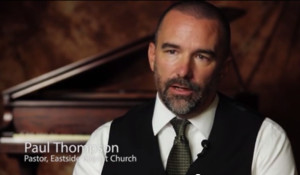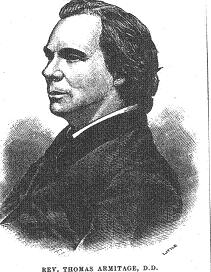(from Thomas Armitage; Baptist Faith and Practice)
Concerning the Bible:
“That the book called the Bible is given by the inspiration of God, and is the only rule of Christian faith and practice. The consequence is, that we have no creeds, nor catechisms, nor decretals, which bind us by their authority. We think a creed worth nothing, unless it is supported by Scriptural authority, and if the creed is founded on the word of God, we do not see why we should not rest on that word which props up the creed; we prefer to go back directly to the foundation itself and rest there alone. If it is able to sustain us, we need nothing else, and if it is not, then we cannot rest upon a creed to support us when that creed has no support for itself. Some of our churches have what they call “declarations,”or “articles of Faith,” which are mere statements of what they think that the Bible teaches, but they are not put forth by any theological or ecclesiastical authority, and therefore do not bind the consciences of the churches. Some of our churches have no such “articles”or “Declarations,” because they find no need for them, and those who use them do not all use the same. Our churches hold that Jesus Christ is the only Law-giver, and the only King in Zion; that his law is laid down in the Scriptures, and is perfect: and, therefore, they refuse to follow all forms of tradition and ecclesiastical ordinations whatever, bowing only to the behests of inspired precept, and the recorded practices of the apostolic churches, as their record is found in the Scriptures.”

